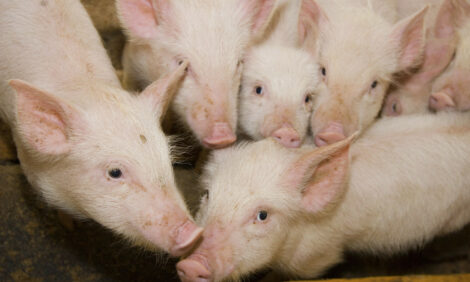



Canadian Pork Council Dismayed by U.S. Dumping Charges
OTTAWA - The Canadian Pork Council is very disappointed with the results of the U.S. Department of Commerce preliminary dumping investigation on live swine from Canada that found dumping margins.
“U.S. law is written to find dumping margins,“ says Clare Schlegel, President of the Canadian Pork Council. “Canadian parties will continue to work to see these rates reduced or eliminated in the final decision.“
Four Canadian exporters were investigated in this case and results were published for three of the four. Of these, one was not found to be dumping and two received margins of 13.25 and 15.01% . The rate for all other exporters will be 14.06%. Dumping occurs when product is sold in the U.S. market at less than fair value. These rates will determine estimated dumping duties that will have to be deposited with U.S. Customs when pigs or hogs are imported.
Today’s decision means that there will be - at least temporarily - added costs to shipping pigs and hogs to the U.S. “The imposition of dumping duties at this stage hurts Canadian and U.S. producers,“ continues Mr. Schlegel. “This is an additional expense for moving hogs into the United States and serves only to erode the free and fair trade that has made the North American hog and pork industry as successful as it is. Canadian and U.S. hog producers should be working together, and not fighting each other through trade actions.“
The preliminary margins will be replaced by final margins, likely in March, but if the U.S. International Trade Commission later finds that the imports of live swine have not injured the U.S. hog industry, the case will end and any duty deposits will be refunded. The Canadian Pork Council and its members will demonstrate that far from being harmful, Canadian pigs and hogs are essential to the continued prosperity of the U.S. industry, which is currently enjoying record high prices.
The investigation was launched against Canada in March 2004 on the basic premise that Canadian producers were unfairly subsidized. A preliminary decision from Commerce in August found that this was not the case, and this leaves the justification for the trade action in question.
Source: Canadian Pork Council - 15th October 2004









